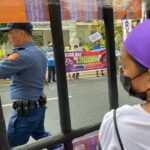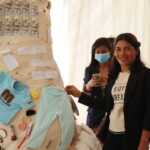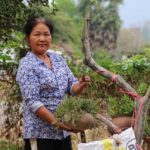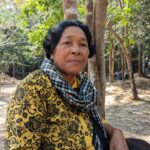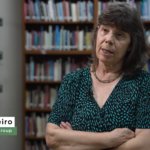(Jakarta, September 18, 2006) On
Sept 17, Achmad Yakub and Irma Yanni of Federasi Serikat Petani Indonesia (FSPI
– Federation of Indonesian Peasant Union) flew to Singapore to organize a Via
Campesina press conference on the World Bank and the IMF They arrived at Changi
Airport at 5 PM local time. When they submitted their passport at the
immigration desk, the officer brought them to the office for
interview.
They have not been released
so far (Sept 18, 6 am) more than 12 hours after their arrest . They
were not doing anything illegal and it is not any clear why the Singapore
Authorities are detaining them. At 1 am, they informed us that they were only
given water and bread.
It's unacceptable that the representatives of a peaceful peasant movement
planning to explain to the press how the World Bank and the IMF are destroying
their lives are not allowed to do it" said Henry Saragih – General Secretary
of FSPI and General Coordinator of La Via Campesina. "We condemn this action
taken by the Singapore Authorities. They should immediately release our friends
and allow the people to express their concerns", he added.
Farmer's movements are opposing
World Bank and IMF because of their disastrous impact on small farmer's lives.
The IMF's responsibility in the crisis in Asia (1997) and in Argentina (2002)
has attracted international outcry. But peasants groups are also blaming the
Fund and the Bank for a wide range of other policies and projects.
The WB is promoting "the
market assisted land reform" leading to privatization of land markets. It
considers land as a commodity and not as a source of livelihood, culture and
community life that has to be protected. Farmers around the world are now
suffering from those policies supposed to support them. A large scale research
conducted in Brazil in 2005 shows that landless peasants accessing the WB scheme
have become heavily indebted and have not found a way out of poverty (1).
Besides this, conditions
attached to the IMF and WB loans to developing countries force them to open
their markets and to privatize public services such as water and education.
In Indonesia, for example, it is under the IMF's pressure that the Soeharto
dictatorship started importing rice in 1998. Indonesian farmers produce enough
rice to feed the whole country's population and rice imports make them lose
their own markets and livelihoods.
In Sri Lanka, the World Bank and
the Asian Development Bank compelled the government to cut subsidies on
fertilisers and seeds, privatise state fertiliser manufacturing industries and
seed farms, sell off stores, mills and retail outlets. They have also made
tireless attempts to introduce charges for irrigation water and to remove
restrictions on the lease and sale of land given to farmers under government
grants. This has led to a deep crisis in the paddy sector. (2)
In many countries, WB funded
projects (infrastructure, large dams…) have evicted rural communities from their
land, benefiting transnational companies and marginalising local
communities. Meanwhile, those policies have pushed those countries into massive
debt. For decades, peasants and indegenous communities have opposed mega
projects funded by the World Bank such as Pak Mon Dam in Thailand, Bakun Dam in
Malaysia, and Kedung Ombo Dam in Indonesia.
The IMF and the World Bank have
now become so unpopular that they can not guarantee that people's voices are
heard at their annual gathering. La Via Campesina, that represents millions of
farmers all around the world, is calling for the World Bank and IMF to close
down. It is time to set up institutions and policies that respect people voices,
rights and lives.
More information: Indra Lubis +62 81806580650
(1) Evaluation of the WB's Rural Porgrams in Brazil,
Maria Luisa Mendonça (2006)
(2) IFI interventions in the paddy and rice
sector in Sri Lanka, MONLAR (2006)



